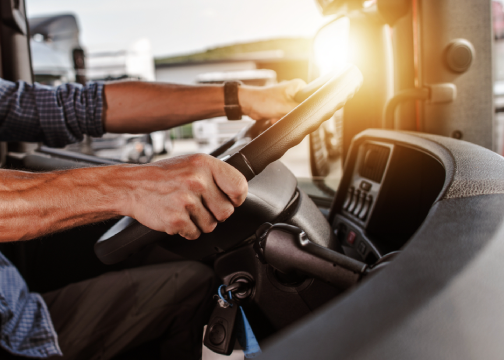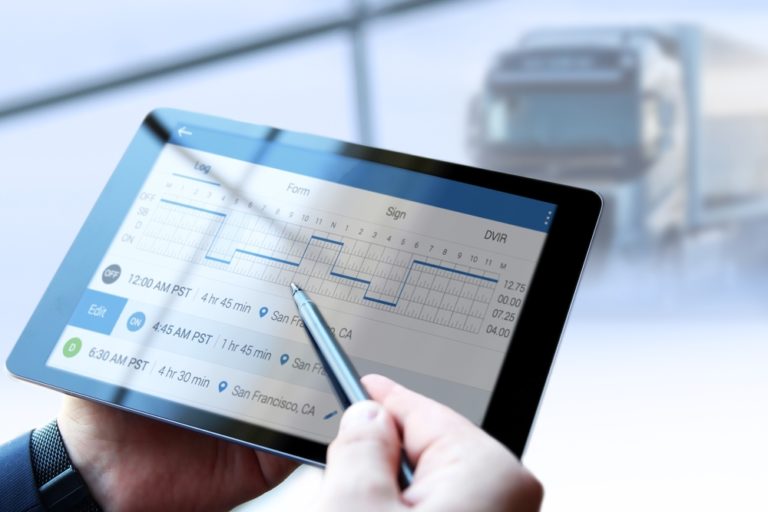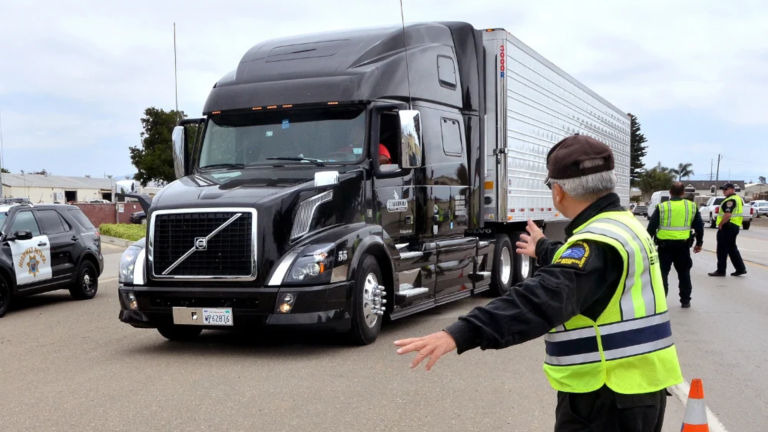What to Know Before Buying an ELD
While all ELDs do have the same goal – to keep users compliant – all ELDs aren’t the same quality.
Before you buy your next ELD, ask yourself ten questions:
1. Is your ELD actually compliant?
One thing many ELD buyers don’t know is that there’s no such thing as an FMCSA-approved ELD. ELD providers have to “self-certify” their ELDs, which means that they’ve declared themselves compliant – not that anyone outside their companies has actually tested their products.
This fact has several consequences:
- Many “self-certified” ELDs don’t actually comply with the FMCSA’s extremely complicated ELD regulations.
- When drivers using non-compliant ELDs get pulled over, they and their carriers can be fined tens of thousands of dollars.
- Even when the ELD itself is to blame, the ELD’s maker isn’t responsible for paying a single cent of non-compliance fines.
If you’re going to avoid FMCSA fines, you need to make sure that your ELD is actually compliant. And according to FMCSA Consultant and DOT Inspector Samuel Mayfield, only two ELDs pass this test.
2. Is your ELD easy to use?
Your back office tech experts might be able to figure out even the most complicated operating systems. But your ELD’s primary users won’t be veteran coders – they’ll be the guys and gals out on the road.
Your ELD’s interface needs to be so intuitive that the brand-new driver who’s running his first solo route knows exactly how to use it. Because you’re not just responsible for putting ELDs on your vehicles – you’re also responsible for making sure your staff knows how to transfer ELD data to DOT inspectors. If they don’t? You’ll have to pay steep fines.
3. Does your ELD provider offer strong support?
At some point, you or one of your drivers will need to talk to your ELD provider. Maybe because a less than well-informed DOT inspector wants to write a ticket for something that’s not a real violation. Maybe because they’ve driven into an out-of-network area and want to know when they’ll be back online.
It would be great if your drivers only needed these questions answered when they’re at the office with time to spare. Unfortunately, trouble strikes at the worst possible moments. That’s why you need an ELD provider that offers:
- 24/7 support, day and night, weekdays and weekends.
- Phone and email support.
- A near-100% phone pick-up rate.
- Fast email response times.
- Multi-lingual support specialists.
Make sure your ELD provider won’t leave you helpless when you need help most.
4. Can your managers remotely track driver ELDs?
If your driver is breaking HOS rules, you have to know. Again, it’s not only the driver who has to pay ELD tickets – your company will get fined, too.
For that reason, you’re going to want an ELD that lets you see your drivers’ current HOS status, whether you’re in the office, on the lot, or at home for the night. Your ELD platform should:
- Be available on desktop, tablet, and mobile.
- Be available on iOS and Android.
- Feature an intuitive user interface.
- Allow access to multiple approved parties – managers, owners, dispatchers, etc.
5. Will your ELD integrate with the tools and systems your fleet already uses?
Your fleet is awash in tech. Maybe you’re tracking fuel card data, maybe you have your own dispatching system, maybe you’re operating a cutting-edge TMS, or maybe you’re doing all of the above. It’s a lot of technological power – but it’s also a lot to keep track of.
You don’t need to throw another thunderbolt into your maelstrom of solutions.
The best ELDs won’t just keep your drivers FMCSA compliant – they’ll also make your entire office more organized. Smart ELD providers can:
- Push their tools onto your platforms.
- Pull your tools onto their platforms.
- Use open API to build one simple system – instead of multiple competing systems – that organizes all of your tech, data, and record-keeping.
6. Can your ELD provider adjust to new FMCSA regulations?
ELD regulations, like all regulations, aren’t static. They’re constantly changing.
That’s why it’s important that your ELD provider isn’t just well-informed, but also has an engineering team that can rewrite all of their code as soon as regulatory changes are announced. Ask if your provider:
- Has a 24-hour engineering cycle.
- Has full-stack engineering.
- Builds their platform entirely in-house, relying on no legacy technologies.
7. Does your ELD provider offer a variety of bonus tools?
Some ELDs only track HOS. They prevent fines and that’s it.
Other ELDs don’t only prevent fines, but actually pay for themselves. These ELDs use HOS regulation as a foundation – on top of it, they’ve built a number of cutting-edge fleet management tools that cut expenses and boost revenue.
Ask if your ELD provider offers:
- Driver management tools.
- Preventative maintenance tools.
- IFTA and DVIR compliance tools.
- GPS tracking tools.
8. Does your ELD provider have a proven record of success?
Not all ELD providers succeed. In fact, some fail spectacularly.
The worst-case scenario is that your provider will go bust and leave your vehicles on the road without working ELDs. But some providers that aren’t on the verge of bankruptcy still have ELDs that break to often, user interfaces that are too difficult to navigate, and support teams that never pick up the phone.
Make sure that your ELD provider has a record of:
- Satisfactorily helping users comply with the ELD mandate.
- Quickly responding to urgent customer requests.
- Supplying technology that continues working in out-of-network areas.
- Evolving and responding to complex customer needs.
9. Are you buying an ELD from a provider or a partner?
Most ELD providers are just that – they wait until you sign a contract, provide an ELD, then move onto their next potential sale.
“Providers” will keep you compliant – as long as their products never break, you never have to call their support team, and you never have any new needs. When any of those things happen? Good luck getting them to return your calls.
A partner, on the other hand, has a support team that always picks up the phone, an engineering team that will customize their solution to meet your fleet’s unique needs, and an all-in-one platform that will grow with your business.
FleetUp does all that and more – they’re the only true partner in the ELD business.
10. Is your ELD actually high quality – or is its price point just too high?
According to psychological studies, when consumers have a hard time discerning a good’s value, they’re more likely to buy the more expensive product, even if it’s overpriced. Unfortunately, ELDs are a complicated product, so it’s easy for low-quality ELD providers to make their devices appear high quality by simply charging more for them.
But the truth is, the best ELDs aren’t the most expensive. In fact, an ELD that’s actually compliant and easy-to-use, with 24/7 customer service, easily integratable features, a platform that can be accessed from anywhere, the world’s best engineering team, and tons of bonus tools is available for $15 right now. Get FleetUp’s ELD while it’s still on sale!








